Sweetened Oat Milk
Unsweetened Oat Milk
Flavored Oat Milk
Organic Oat Milk
Supermarkets
Online Retail
Health Food Stores
Convenience Stores
Households
Food Service
Beverage Industry
Food Production
Fortified Oat Milk
Barista Oat Milk
Plain Oat Milk
North America
Europe
South America
Asia Pacific
Middle East and Africa
North America Outlook (USD Billion, 2019-2035)
North America Oat Milk Market by Product Type
Sweetened Oat Milk
Unsweetened Oat Milk
Flavored Oat Milk
Organic Oat Milk
North America Oat Milk Market by Distribution Channel Type
Supermarkets
Online Retail
Health Food Stores
Convenience Stores
North America Oat Milk Market by End User Type
Households
Food Service
Beverage Industry
Food Production
North America Oat Milk Market by Formulation Type
Fortified Oat Milk
Barista Oat Milk
Plain Oat Milk
North America Oat Milk Market by Regional Type
US
Canada
US Outlook (USD Billion, 2019-2035)
US Oat Milk Market by Product Type
Sweetened Oat Milk
Unsweetened Oat Milk
Flavored Oat Milk
Organic Oat Milk
US Oat Milk Market by Distribution Channel Type
Supermarkets
Online Retail
Health Food Stores
Convenience Stores
US Oat Milk Market by End User Type
Households
Food Service
Beverage Industry
Food Production
US Oat Milk Market by Formulation Type
Fortified Oat Milk
Barista Oat Milk
Plain Oat Milk
CANADA Outlook (USD Billion, 2019-2035)
CANADA Oat Milk Market by Product Type
Sweetened Oat Milk
Unsweetened Oat Milk
Flavored Oat Milk
Organic Oat Milk
CANADA Oat Milk Market by Distribution Channel Type
Supermarkets
Online Retail
Health Food Stores
Convenience Stores
CANADA Oat Milk Market by End User Type
Households
Food Service
Beverage Industry
Food Production
CANADA Oat Milk Market by Formulation Type
Fortified Oat Milk
Barista Oat Milk
Plain Oat Milk
Europe Outlook (USD Billion, 2019-2035)
Europe Oat Milk Market by Product Type
Sweetened Oat Milk
Unsweetened Oat Milk
Flavored Oat Milk
Organic Oat Milk
Europe Oat Milk Market by Distribution Channel Type
Supermarkets
Online Retail
Health Food Stores
Convenience Stores
Europe Oat Milk Market by End User Type
Households
Food Service
Beverage Industry
Food Production
Europe Oat Milk Market by Formulation Type
Fortified Oat Milk
Barista Oat Milk
Plain Oat Milk
Europe Oat Milk Market by Regional Type
Germany
UK
France
Russia
Italy
Spain
Rest of Europe
GERMANY Outlook (USD Billion, 2019-2035)
GERMANY Oat Milk Market by Product Type
Sweetened Oat Milk
Unsweetened Oat Milk
Flavored Oat Milk
Organic Oat Milk
GERMANY Oat Milk Market by Distribution Channel Type
Supermarkets
Online Retail
Health Food Stores
Convenience Stores
GERMANY Oat Milk Market by End User Type
Households
Food Service
Beverage Industry
Food Production
GERMANY Oat Milk Market by Formulation Type
Fortified Oat Milk
Barista Oat Milk
Plain Oat Milk
UK Outlook (USD Billion, 2019-2035)
UK Oat Milk Market by Product Type
Sweetened Oat Milk
Unsweetened Oat Milk
Flavored Oat Milk
Organic Oat Milk
UK Oat Milk Market by Distribution Channel Type
Supermarkets
Online Retail
Health Food Stores
Convenience Stores
UK Oat Milk Market by End User Type
Households
Food Service
Beverage Industry
Food Production
UK Oat Milk Market by Formulation Type
Fortified Oat Milk
Barista Oat Milk
Plain Oat Milk
FRANCE Outlook (USD Billion, 2019-2035)
FRANCE Oat Milk Market by Product Type
Sweetened Oat Milk
Unsweetened Oat Milk
Flavored Oat Milk
Organic Oat Milk
FRANCE Oat Milk Market by Distribution Channel Type
Supermarkets
Online Retail
Health Food Stores
Convenience Stores
FRANCE Oat Milk Market by End User Type
Households
Food Service
Beverage Industry
Food Production
FRANCE Oat Milk Market by Formulation Type
Fortified Oat Milk
Barista Oat Milk
Plain Oat Milk
RUSSIA Outlook (USD Billion, 2019-2035)
RUSSIA Oat Milk Market by Product Type
Sweetened Oat Milk
Unsweetened Oat Milk
Flavored Oat Milk
Organic Oat Milk
RUSSIA Oat Milk Market by Distribution Channel Type
Supermarkets
Online Retail
Health Food Stores
Convenience Stores
RUSSIA Oat Milk Market by End User Type
Households
Food Service
Beverage Industry
Food Production
RUSSIA Oat Milk Market by Formulation Type
Fortified Oat Milk
Barista Oat Milk
Plain Oat Milk
ITALY Outlook (USD Billion, 2019-2035)
ITALY Oat Milk Market by Product Type
Sweetened Oat Milk
Unsweetened Oat Milk
Flavored Oat Milk
Organic Oat Milk
ITALY Oat Milk Market by Distribution Channel Type
Supermarkets
Online Retail
Health Food Stores
Convenience Stores
ITALY Oat Milk Market by End User Type
Households
Food Service
Beverage Industry
Food Production
ITALY Oat Milk Market by Formulation Type
Fortified Oat Milk
Barista Oat Milk
Plain Oat Milk
SPAIN Outlook (USD Billion, 2019-2035)
SPAIN Oat Milk Market by Product Type
Sweetened Oat Milk
Unsweetened Oat Milk
Flavored Oat Milk
Organic Oat Milk
SPAIN Oat Milk Market by Distribution Channel Type
Supermarkets
Online Retail
Health Food Stores
Convenience Stores
SPAIN Oat Milk Market by End User Type
Households
Food Service
Beverage Industry
Food Production
SPAIN Oat Milk Market by Formulation Type
Fortified Oat Milk
Barista Oat Milk
Plain Oat Milk
REST OF EUROPE Outlook (USD Billion, 2019-2035)
REST OF EUROPE Oat Milk Market by Product Type
Sweetened Oat Milk
Unsweetened Oat Milk
Flavored Oat Milk
Organic Oat Milk
REST OF EUROPE Oat Milk Market by Distribution Channel Type
Supermarkets
Online Retail
Health Food Stores
Convenience Stores
REST OF EUROPE Oat Milk Market by End User Type
Households
Food Service
Beverage Industry
Food Production
REST OF EUROPE Oat Milk Market by Formulation Type
Fortified Oat Milk
Barista Oat Milk
Plain Oat Milk
APAC Outlook (USD Billion, 2019-2035)
APAC Oat Milk Market by Product Type
Sweetened Oat Milk
Unsweetened Oat Milk
Flavored Oat Milk
Organic Oat Milk
APAC Oat Milk Market by Distribution Channel Type
Supermarkets
Online Retail
Health Food Stores
Convenience Stores
APAC Oat Milk Market by End User Type
Households
Food Service
Beverage Industry
Food Production
APAC Oat Milk Market by Formulation Type
Fortified Oat Milk
Barista Oat Milk
Plain Oat Milk
APAC Oat Milk Market by Regional Type
China
India
Japan
South Korea
Malaysia
Thailand
Indonesia
Rest of APAC
CHINA Outlook (USD Billion, 2019-2035)
CHINA Oat Milk Market by Product Type
Sweetened Oat Milk
Unsweetened Oat Milk
Flavored Oat Milk
Organic Oat Milk
CHINA Oat Milk Market by Distribution Channel Type
Supermarkets
Online Retail
Health Food Stores
Convenience Stores
CHINA Oat Milk Market by End User Type
Households
Food Service
Beverage Industry
Food Production
CHINA Oat Milk Market by Formulation Type
Fortified Oat Milk
Barista Oat Milk
Plain Oat Milk
INDIA Outlook (USD Billion, 2019-2035)
INDIA Oat Milk Market by Product Type
Sweetened Oat Milk
Unsweetened Oat Milk
Flavored Oat Milk
Organic Oat Milk
INDIA Oat Milk Market by Distribution Channel Type
Supermarkets
Online Retail
Health Food Stores
Convenience Stores
INDIA Oat Milk Market by End User Type
Households
Food Service
Beverage Industry
Food Production
INDIA Oat Milk Market by Formulation Type
Fortified Oat Milk
Barista Oat Milk
Plain Oat Milk
JAPAN Outlook (USD Billion, 2019-2035)
JAPAN Oat Milk Market by Product Type
Sweetened Oat Milk
Unsweetened Oat Milk
Flavored Oat Milk
Organic Oat Milk
JAPAN Oat Milk Market by Distribution Channel Type
Supermarkets
Online Retail
Health Food Stores
Convenience Stores
JAPAN Oat Milk Market by End User Type
Households
Food Service
Beverage Industry
Food Production
JAPAN Oat Milk Market by Formulation Type
Fortified Oat Milk
Barista Oat Milk
Plain Oat Milk
SOUTH KOREA Outlook (USD Billion, 2019-2035)
SOUTH KOREA Oat Milk Market by Product Type
Sweetened Oat Milk
Unsweetened Oat Milk
Flavored Oat Milk
Organic Oat Milk
SOUTH KOREA Oat Milk Market by Distribution Channel Type
Supermarkets
Online Retail
Health Food Stores
Convenience Stores
SOUTH KOREA Oat Milk Market by End User Type
Households
Food Service
Beverage Industry
Food Production
SOUTH KOREA Oat Milk Market by Formulation Type
Fortified Oat Milk
Barista Oat Milk
Plain Oat Milk
MALAYSIA Outlook (USD Billion, 2019-2035)
MALAYSIA Oat Milk Market by Product Type
Sweetened Oat Milk
Unsweetened Oat Milk
Flavored Oat Milk
Organic Oat Milk
MALAYSIA Oat Milk Market by Distribution Channel Type
Supermarkets
Online Retail
Health Food Stores
Convenience Stores
MALAYSIA Oat Milk Market by End User Type
Households
Food Service
Beverage Industry
Food Production
MALAYSIA Oat Milk Market by Formulation Type
Fortified Oat Milk
Barista Oat Milk
Plain Oat Milk
THAILAND Outlook (USD Billion, 2019-2035)
THAILAND Oat Milk Market by Product Type
Sweetened Oat Milk
Unsweetened Oat Milk
Flavored Oat Milk
Organic Oat Milk
THAILAND Oat Milk Market by Distribution Channel Type
Supermarkets
Online Retail
Health Food Stores
Convenience Stores
THAILAND Oat Milk Market by End User Type
Households
Food Service
Beverage Industry
Food Production
THAILAND Oat Milk Market by Formulation Type
Fortified Oat Milk
Barista Oat Milk
Plain Oat Milk
INDONESIA Outlook (USD Billion, 2019-2035)
INDONESIA Oat Milk Market by Product Type
Sweetened Oat Milk
Unsweetened Oat Milk
Flavored Oat Milk
Organic Oat Milk
INDONESIA Oat Milk Market by Distribution Channel Type
Supermarkets
Online Retail
Health Food Stores
Convenience Stores
INDONESIA Oat Milk Market by End User Type
Households
Food Service
Beverage Industry
Food Production
INDONESIA Oat Milk Market by Formulation Type
Fortified Oat Milk
Barista Oat Milk
Plain Oat Milk
REST OF APAC Outlook (USD Billion, 2019-2035)
REST OF APAC Oat Milk Market by Product Type
Sweetened Oat Milk
Unsweetened Oat Milk
Flavored Oat Milk
Organic Oat Milk
REST OF APAC Oat Milk Market by Distribution Channel Type
Supermarkets
Online Retail
Health Food Stores
Convenience Stores
REST OF APAC Oat Milk Market by End User Type
Households
Food Service
Beverage Industry
Food Production
REST OF APAC Oat Milk Market by Formulation Type
Fortified Oat Milk
Barista Oat Milk
Plain Oat Milk
South America Outlook (USD Billion, 2019-2035)
South America Oat Milk Market by Product Type
Sweetened Oat Milk
Unsweetened Oat Milk
Flavored Oat Milk
Organic Oat Milk
South America Oat Milk Market by Distribution Channel Type
Supermarkets
Online Retail
Health Food Stores
Convenience Stores
South America Oat Milk Market by End User Type
Households
Food Service
Beverage Industry
Food Production
South America Oat Milk Market by Formulation Type
Fortified Oat Milk
Barista Oat Milk
Plain Oat Milk
South America Oat Milk Market by Regional Type
Brazil
Mexico
Argentina
Rest of South America
BRAZIL Outlook (USD Billion, 2019-2035)
BRAZIL Oat Milk Market by Product Type
Sweetened Oat Milk
Unsweetened Oat Milk
Flavored Oat Milk
Organic Oat Milk
BRAZIL Oat Milk Market by Distribution Channel Type
Supermarkets
Online Retail
Health Food Stores
Convenience Stores
BRAZIL Oat Milk Market by End User Type
Households
Food Service
Beverage Industry
Food Production
BRAZIL Oat Milk Market by Formulation Type
Fortified Oat Milk
Barista Oat Milk
Plain Oat Milk
MEXICO Outlook (USD Billion, 2019-2035)
MEXICO Oat Milk Market by Product Type
Sweetened Oat Milk
Unsweetened Oat Milk
Flavored Oat Milk
Organic Oat Milk
MEXICO Oat Milk Market by Distribution Channel Type
Supermarkets
Online Retail
Health Food Stores
Convenience Stores
MEXICO Oat Milk Market by End User Type
Households
Food Service
Beverage Industry
Food Production
MEXICO Oat Milk Market by Formulation Type
Fortified Oat Milk
Barista Oat Milk
Plain Oat Milk
ARGENTINA Outlook (USD Billion, 2019-2035)
ARGENTINA Oat Milk Market by Product Type
Sweetened Oat Milk
Unsweetened Oat Milk
Flavored Oat Milk
Organic Oat Milk
ARGENTINA Oat Milk Market by Distribution Channel Type
Supermarkets
Online Retail
Health Food Stores
Convenience Stores
ARGENTINA Oat Milk Market by End User Type
Households
Food Service
Beverage Industry
Food Production
ARGENTINA Oat Milk Market by Formulation Type
Fortified Oat Milk
Barista Oat Milk
Plain Oat Milk
REST OF SOUTH AMERICA Outlook (USD Billion, 2019-2035)
REST OF SOUTH AMERICA Oat Milk Market by Product Type
Sweetened Oat Milk
Unsweetened Oat Milk
Flavored Oat Milk
Organic Oat Milk
REST OF SOUTH AMERICA Oat Milk Market by Distribution Channel Type
Supermarkets
Online Retail
Health Food Stores
Convenience Stores
REST OF SOUTH AMERICA Oat Milk Market by End User Type
Households
Food Service
Beverage Industry
Food Production
REST OF SOUTH AMERICA Oat Milk Market by Formulation Type
Fortified Oat Milk
Barista Oat Milk
Plain Oat Milk
MEA Outlook (USD Billion, 2019-2035)
MEA Oat Milk Market by Product Type
Sweetened Oat Milk
Unsweetened Oat Milk
Flavored Oat Milk
Organic Oat Milk
MEA Oat Milk Market by Distribution Channel Type
Supermarkets
Online Retail
Health Food Stores
Convenience Stores
MEA Oat Milk Market by End User Type
Households
Food Service
Beverage Industry
Food Production
MEA Oat Milk Market by Formulation Type
Fortified Oat Milk
Barista Oat Milk
Plain Oat Milk
MEA Oat Milk Market by Regional Type
GCC Countries
South Africa
Rest of MEA
GCC COUNTRIES Outlook (USD Billion, 2019-2035)
GCC COUNTRIES Oat Milk Market by Product Type
Sweetened Oat Milk
Unsweetened Oat Milk
Flavored Oat Milk
Organic Oat Milk
GCC COUNTRIES Oat Milk Market by Distribution Channel Type
Supermarkets
Online Retail
Health Food Stores
Convenience Stores
GCC COUNTRIES Oat Milk Market by End User Type
Households
Food Service
Beverage Industry
Food Production
GCC COUNTRIES Oat Milk Market by Formulation Type
Fortified Oat Milk
Barista Oat Milk
Plain Oat Milk
SOUTH AFRICA Outlook (USD Billion, 2019-2035)
SOUTH AFRICA Oat Milk Market by Product Type
Sweetened Oat Milk
Unsweetened Oat Milk
Flavored Oat Milk
Organic Oat Milk
SOUTH AFRICA Oat Milk Market by Distribution Channel Type
Supermarkets
Online Retail
Health Food Stores
Convenience Stores
SOUTH AFRICA Oat Milk Market by End User Type
Households
Food Service
Beverage Industry
Food Production
SOUTH AFRICA Oat Milk Market by Formulation Type
Fortified Oat Milk
Barista Oat Milk
Plain Oat Milk
REST OF MEA Outlook (USD Billion, 2019-2035)
REST OF MEA Oat Milk Market by Product Type
Sweetened Oat Milk
Unsweetened Oat Milk
Flavored Oat Milk
Organic Oat Milk
REST OF MEA Oat Milk Market by Distribution Channel Type
Supermarkets
Online Retail
Health Food Stores
Convenience Stores
REST OF MEA Oat Milk Market by End User Type
Households
Food Service
Beverage Industry
Food Production
REST OF MEA Oat Milk Market by Formulation Type
Fortified Oat Milk
Barista Oat Milk
Plain Oat Milk


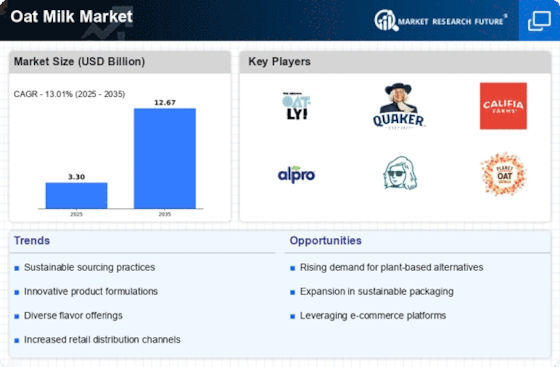
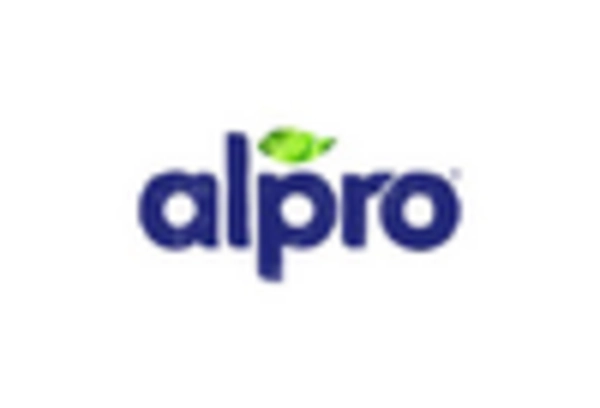
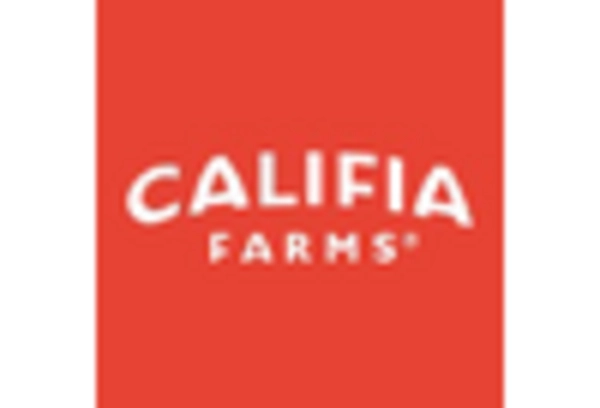


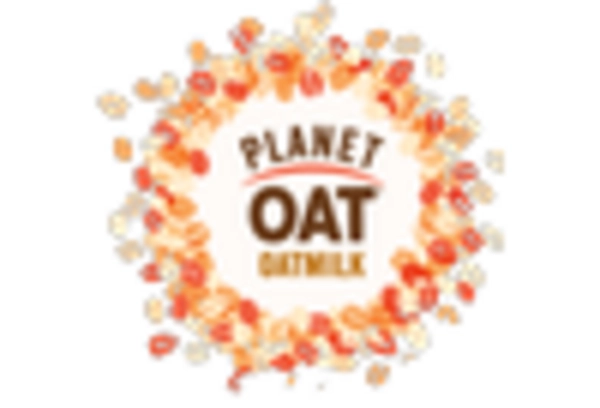
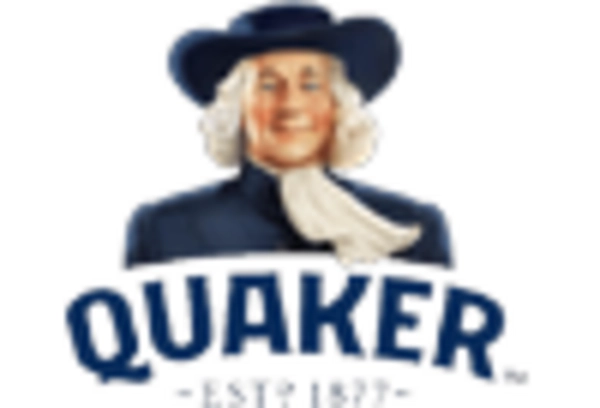









Leave a Comment